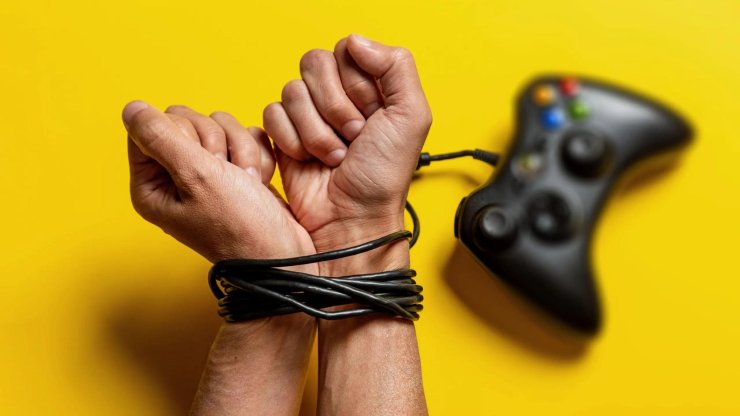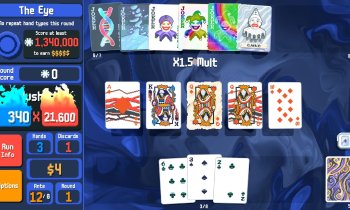A 16-year-old from Tamil Nadu's Tirunelveli district experienced extreme mental health deterioration due to gaming addiction. His continuous playing of PUBG and Free Fire led to hospitalization and serious psychological complications.

Alarming Case Highlights Gaming Addiction Dangers
The teenager's parents admitted him to a local hospital after witnessing disturbing behavior patterns. According to doctors, the boy exhibited severe gaming addiction mental health effects including complete social withdrawal. Furthermore, he stopped eating regular meals and ceased all meaningful communication with family members.
Most concerning, the boy's fingers continued moving in gaming motions even without holding a phone. This phantom gaming behavior demonstrates the severity of his psychological condition. Additionally, medical professionals diagnosed him with depression, anxiety, and chronic stress.
Understanding Internet Gaming Disorder
Internet gaming disorder, also known as video game addiction, represents a serious mental health condition. This disorder involves severely reduced control over gaming habits. Consequently, it creates negative consequences across multiple life areas including self-care, relationships, education, and work performance.
While this condition can involve any electronic device, most significant cases primarily involve internet-based gaming. Therefore, online games like PUBG and Free Fire pose particular risks for vulnerable individuals.
Debate Over Classification and Recognition
Researchers continue debating whether internet gaming addiction should be classified as a formal addiction or mental illness. Many experts compare it to gambling disorder, where the rush of winning becomes the primary motivation for continued play. However, others argue this comparison is flawed because video games don't typically involve financial losses.
Moreover, video game success often requires cognitive skills and quick reflexes. In contrast, gambling outcomes depend mainly on chance. Nevertheless, both conditions share similar reward mechanisms in the brain.
Recognizing Gaming Addiction Warning Signs
Parents and caregivers should watch for specific gaming addiction mental health effects and behavioral changes. Early recognition can prevent severe cases like the Tamil Nadu teenager's hospitalization.
Academic and Social Performance Decline
Poor performance at school, work, or household responsibilities often signals problematic gaming habits. Additionally, students may show declining grades or missed assignments due to excessive gaming sessions. Furthermore, social relationships deteriorate as gaming takes priority over family and friends.
Withdrawal and Mood Changes
Withdrawal symptoms become apparent when gaming access is restricted. These symptoms include persistent sadness, heightened anxiety, and increased irritability. Moreover, individuals may become hostile when asked to stop playing or limit gaming time.
Escalating Gaming Requirements
Tolerance develops over time, requiring longer gaming sessions to achieve the same enjoyment level. Consequently, individuals spend increasingly more hours playing to satisfy their psychological needs. Additionally, they may give up previously enjoyed activities to make time for gaming.
Deceptive Behaviors and Neglect
Gaming addicts often lie to family members about their actual playing time. They may also deceive others about the extent of their gaming involvement. Furthermore, personal hygiene and grooming standards decline significantly as gaming takes priority over basic self-care.
Escapism and Emotional Regulation
Video games become the primary method for escaping stressful situations at school or work. Similarly, individuals use gaming to relieve negative emotions like guilt, hopelessness, or frustration. Therefore, healthy coping mechanisms are replaced with problematic gaming behaviors.
Understanding the Neurological Basis
Medical researchers are still investigating the exact causes of gaming addiction mental health effects. However, current evidence points to specific neurological mechanisms that make certain games particularly addictive.
Dopamine Release and Reward Systems
Playing and winning video games triggers dopamine release in the brain. This neurotransmitter plays a crucial role in pleasure, reward, and motivation systems. Additionally, dopamine involvement explains similarities between gaming addiction and substance use disorders.
Recent neurological research reveals comparable brain patterns between gaming addicts and people with substance abuse problems. Therefore, the addictive potential of gaming has legitimate biological foundations.
Effective Treatment and Management Strategies
The primary treatment for gaming addiction mental health effects involves professional psychological intervention. Talk therapy, or psychotherapy, provides the foundation for recovery programs. Additionally, working with qualified mental health professionals ensures proper support, education, and guidance.
Cognitive Behavioral Therapy Benefits
Cognitive behavioral therapy offers a structured, goal-oriented approach to recovery. This therapy type helps individuals overcome obsessive thoughts and negative behavioral patterns. Furthermore, it provides practical tools for managing gaming urges and developing healthier habits.
Group Therapy and Peer Support
Group therapy sessions provide motivation and moral support from others facing similar challenges. Participants learn from shared experiences while building accountability relationships. Moreover, group settings normalize the recovery process and reduce feelings of isolation.
Family Counseling and Environmental Changes
Family or marriage counseling educates loved ones about gaming addiction mental health effects. This education helps create more stable and supportive home environments. Additionally, family members learn how to set appropriate boundaries while providing emotional support.
Prevention and Early Intervention
Preventing severe cases like the Tamil Nadu teenager requires early recognition and intervention. Parents should monitor gaming habits and maintain open communication with their children. Furthermore, establishing reasonable gaming limits from an early age helps prevent problematic patterns from developing.
Educational institutions should also recognize gaming addiction mental health effects and provide appropriate resources. Teachers and counselors can identify at-risk students and connect them with professional help before situations become critical.
The Tamil Nadu case serves as a stark reminder of gaming addiction's serious consequences. Without proper intervention, these conditions can lead to complete psychological breakdown and require intensive medical treatment.










Comments